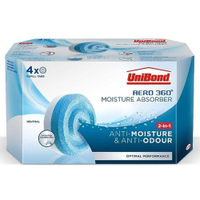What is the best dehumidifier for a bathroom? Expert advice on safely removing moisture and preventing mould
Bathrooms are a constant battleground for mould and mildew, unless you have one of these
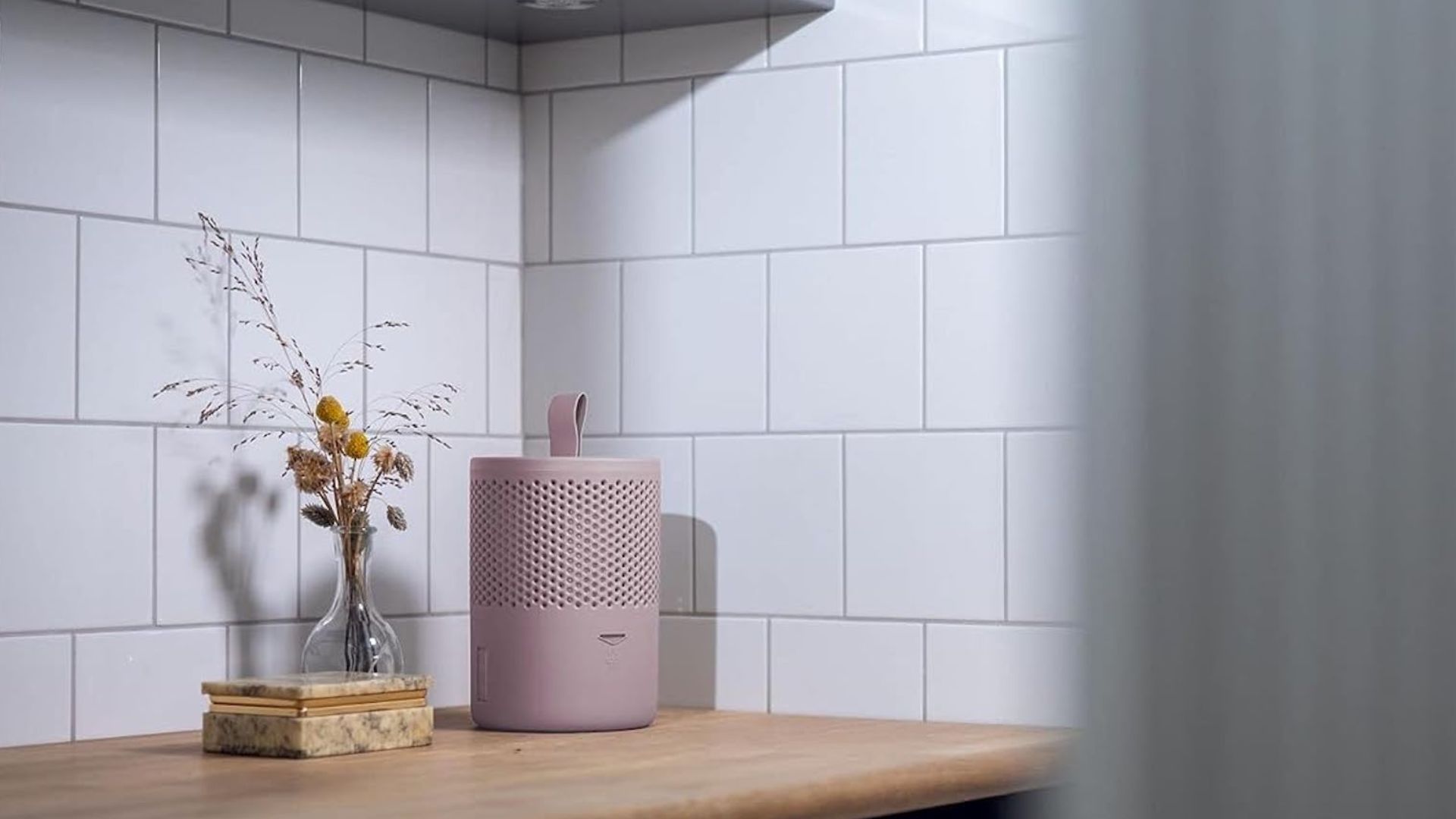

Laura Honey
If you're struggling with humidity, dampness, mould, and mildew in your bathroom, you're not alone. And you're most certainly not the first person to think about calling in one of the best dehumidifier for a bathroom to get your air clear, dry, and healthy again. It's a great idea, but not without doing some proper research first.
To find the best dehumidifier for a bathroom, you'll need to know the answer to some reasonable questions. For example, one of the biggest dehumidifier mistakes people make is assuming that all dehumidifiers can go in steamy showrooms; because of their IP ratings, only a few are actually safe to use.
Different bathrooms will also need different types of dehumidifiers. More rustic, drafty, unheated bathrooms will need a desiccant dehumidifier, whilst warmer, more constantly humid rooms will want a refrigerant model (there's more on the differences between desicant and refrigerant dehumidifiers over here).
I've spoken with experts to give you more details on everything you need to know about the best dehumidifiers for bathrooms, including the size you'll need as well as some advice on how to reduce humidity in the house. Your home will be back to clean and fresh before you know it.
What is the best dehumidifier for a bathroom?
Let's get straight to it. The best dehumidifiers for a bathroom need to quickly and efficiently reduce high humidity levels without taking up much space. Of course, there are other factors that will play into your choices, such as the noise levels, energy efficiency, and special mould and mildew features, but I'll get into those further down.
I've tested plenty of the best dehumidifiers on the market in my steamy, damp shower room to narrow down the models that you need to consider when shopping. After speaking with the experts, I've pulled together six suggestions, but I always find it helps to know what you're reading about, including how a dehumidifier works:
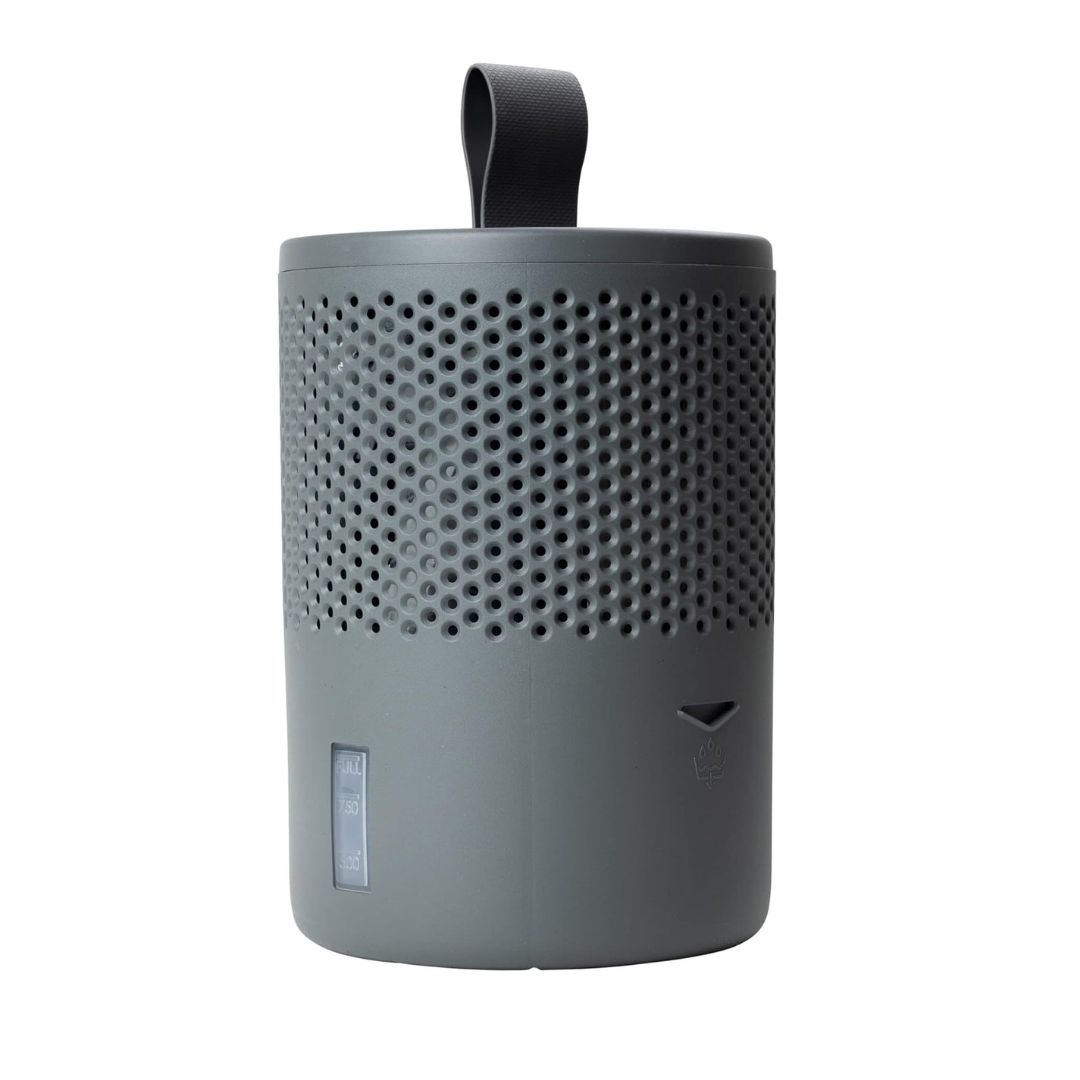
This small and compact dehumidifier will sit neatly on a shelf in your bathroom whilst effortlessly absorbing excess moisture and removing bad odours. It uses moisture-absorbing crystals, lasting between one and three months, depending on where it’s placed and the frequency of use.
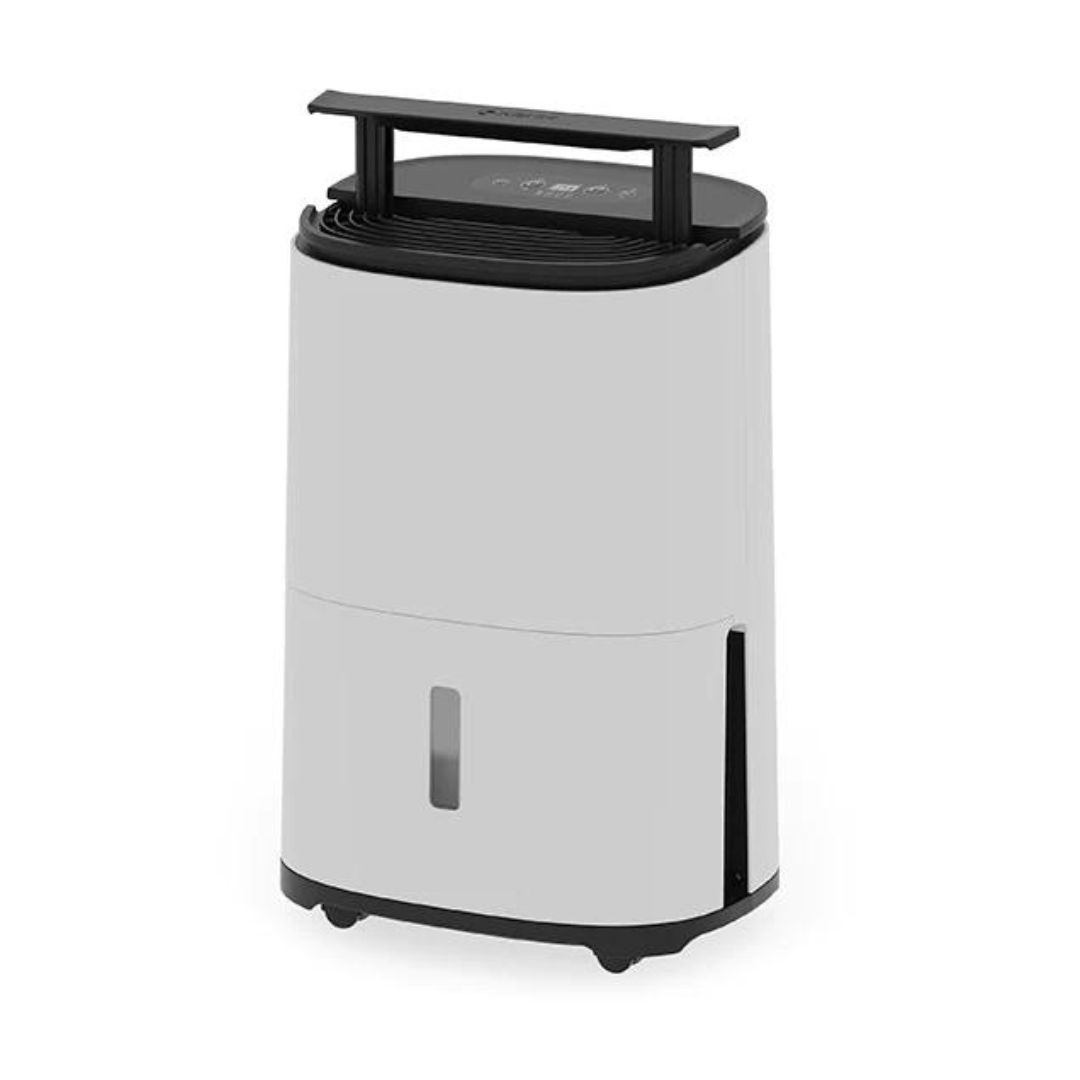
You don’t need to place your dehumidifier inside the bathroom for it to work well. Leave this on the landing just outside your bathroom and open the door once you’re done, it will work its magic, removing up to 20 litres of moisture from the air a day. During our MeacoDry Arete One 20L review, we found it easy to use with a range of different functions and has an auto-shut-off feature that will also help save energy.
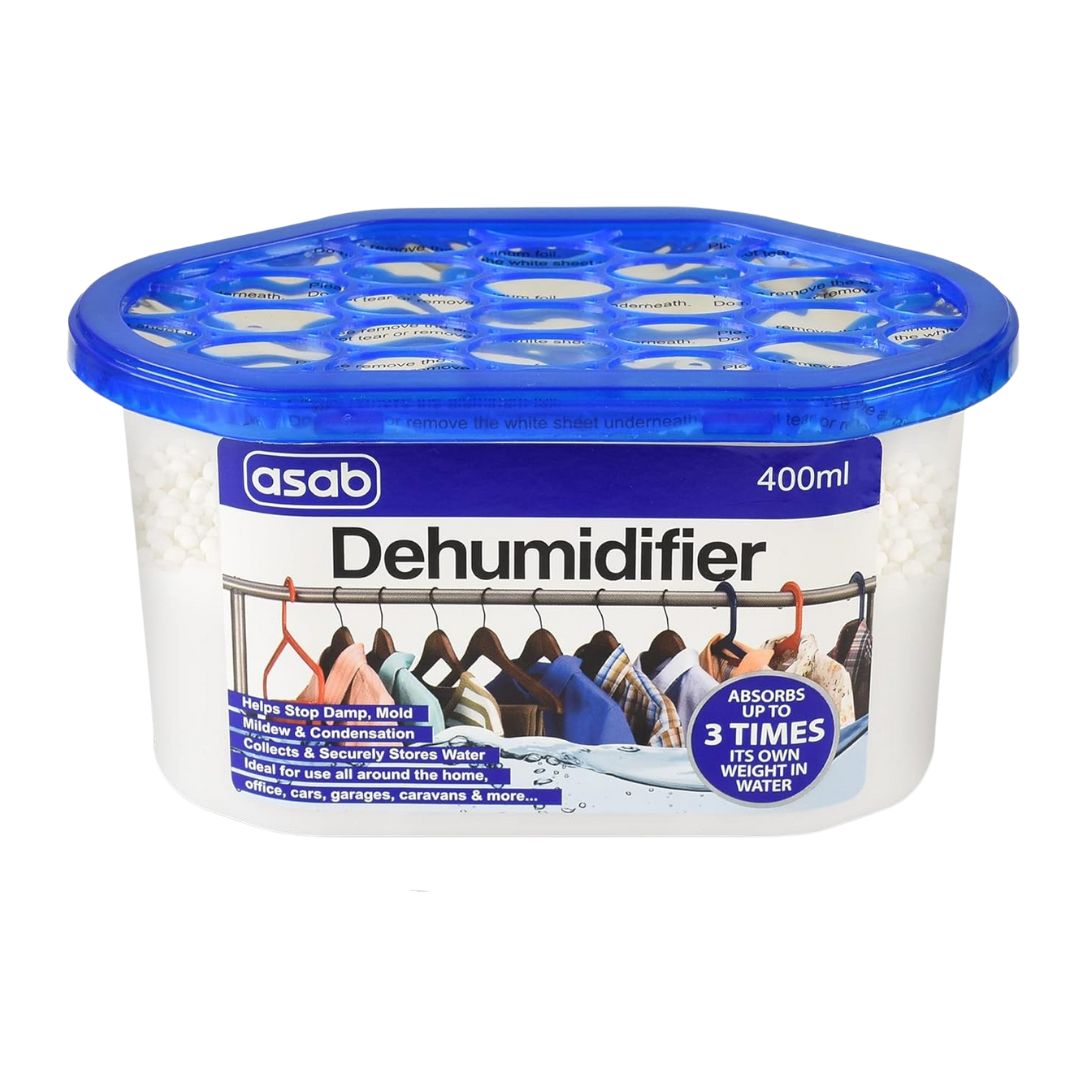
If you have a small bathroom, then you may find that a disposable dehumidifier works best for you. There’s nothing complicated about these, you remove the foil covering and place it in a space in your bathroom. Like dehumidifier bags, they use beads that soak up the excess moisture and help prevent mould and fungus while helping the room smell fresh.
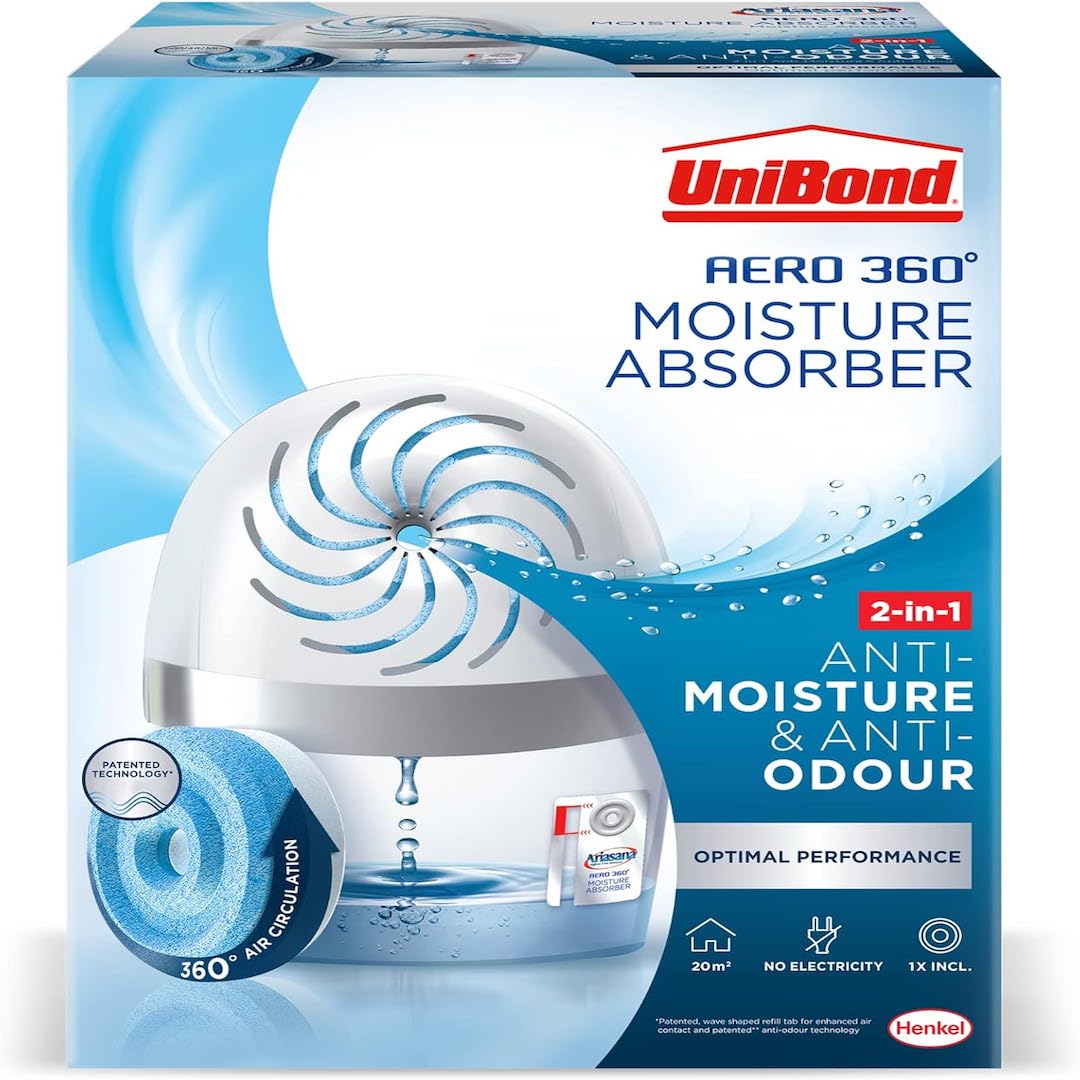
This dehumidifier doesn’t use electricity and is ideal for rooms up to 20m². One tab lasts between one and three months, depending on the level of excess moisture in the air. Once it’s full, you can empty the water, and it even has a spill-prevention system included. Once your tab is done, you can purchase a refill, so it’s even better for the environment.
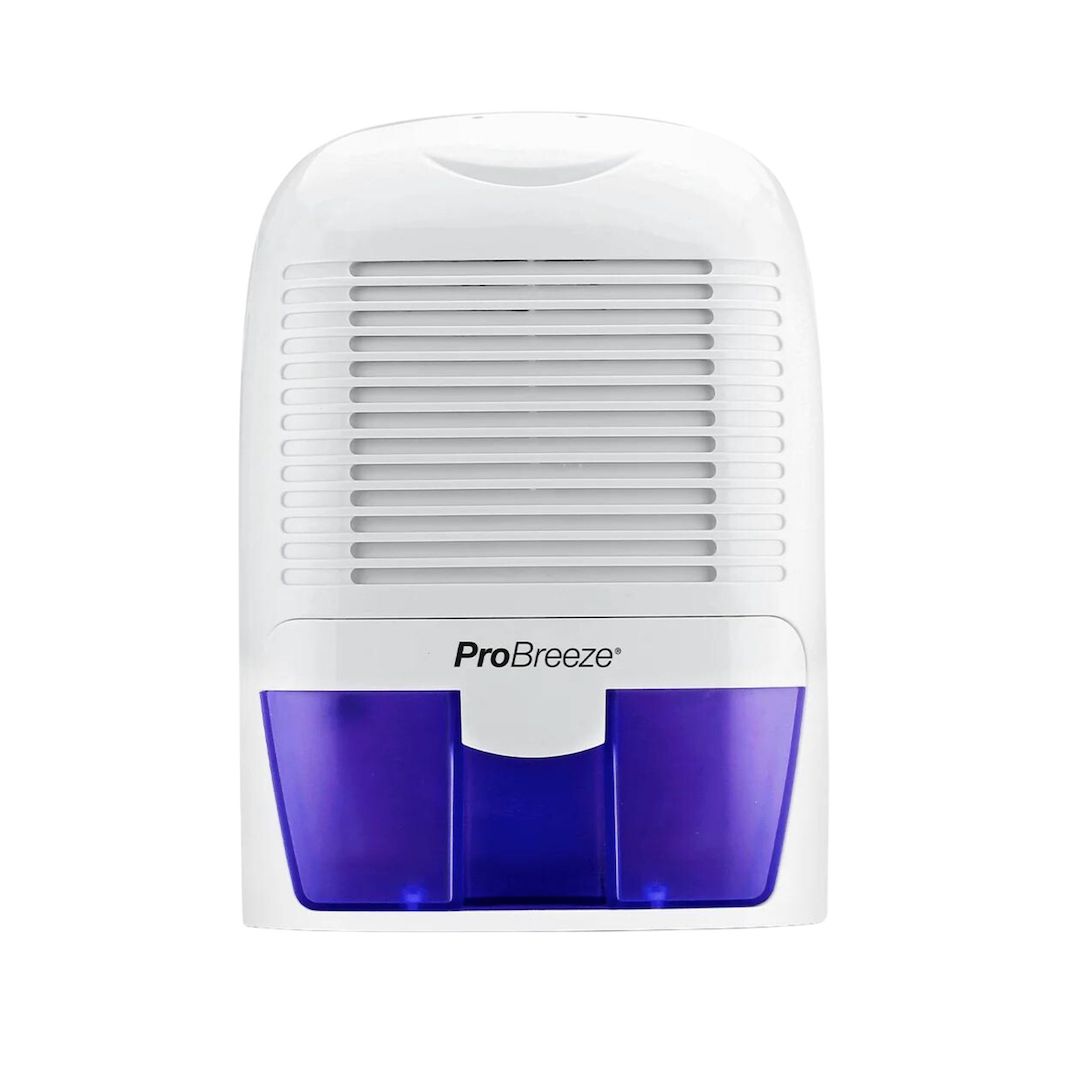
This is an electric option, but if you live in a small home or apartment, or maybe your bathroom is in a separate part of the house, this is ideal. Just plug it in and leave it outside the door of your bathroom whilst you shower or bathe and leave it run, it will clear any excess humidity, and it’s cheap to run.
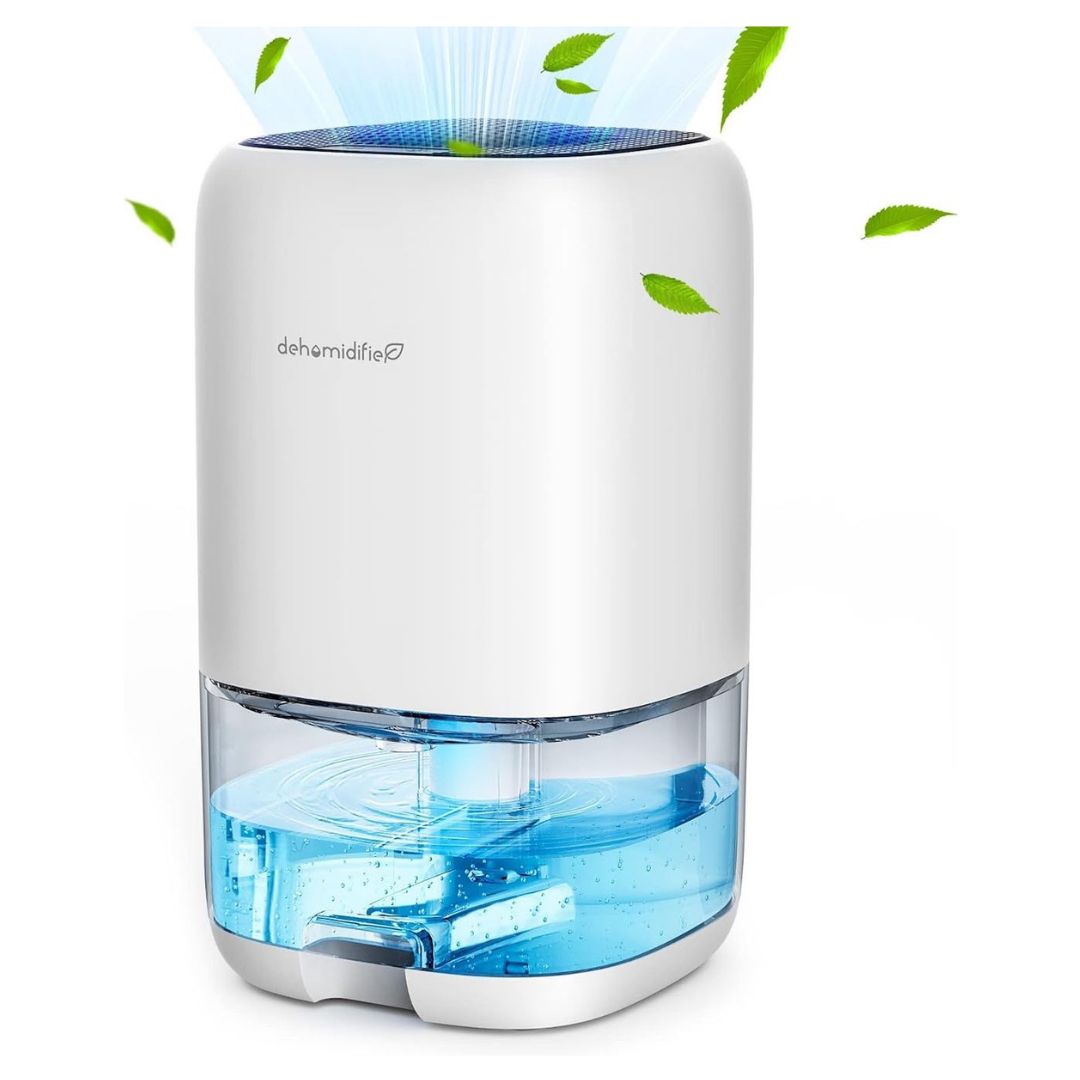
This dehumidifier has a removable filter, so it does a great job of filtering and removing odours as well as removing excess moisture from the air. It has a great design including an LED light that cycles seven colours.
Things to look for in a bathroom dehumidifier
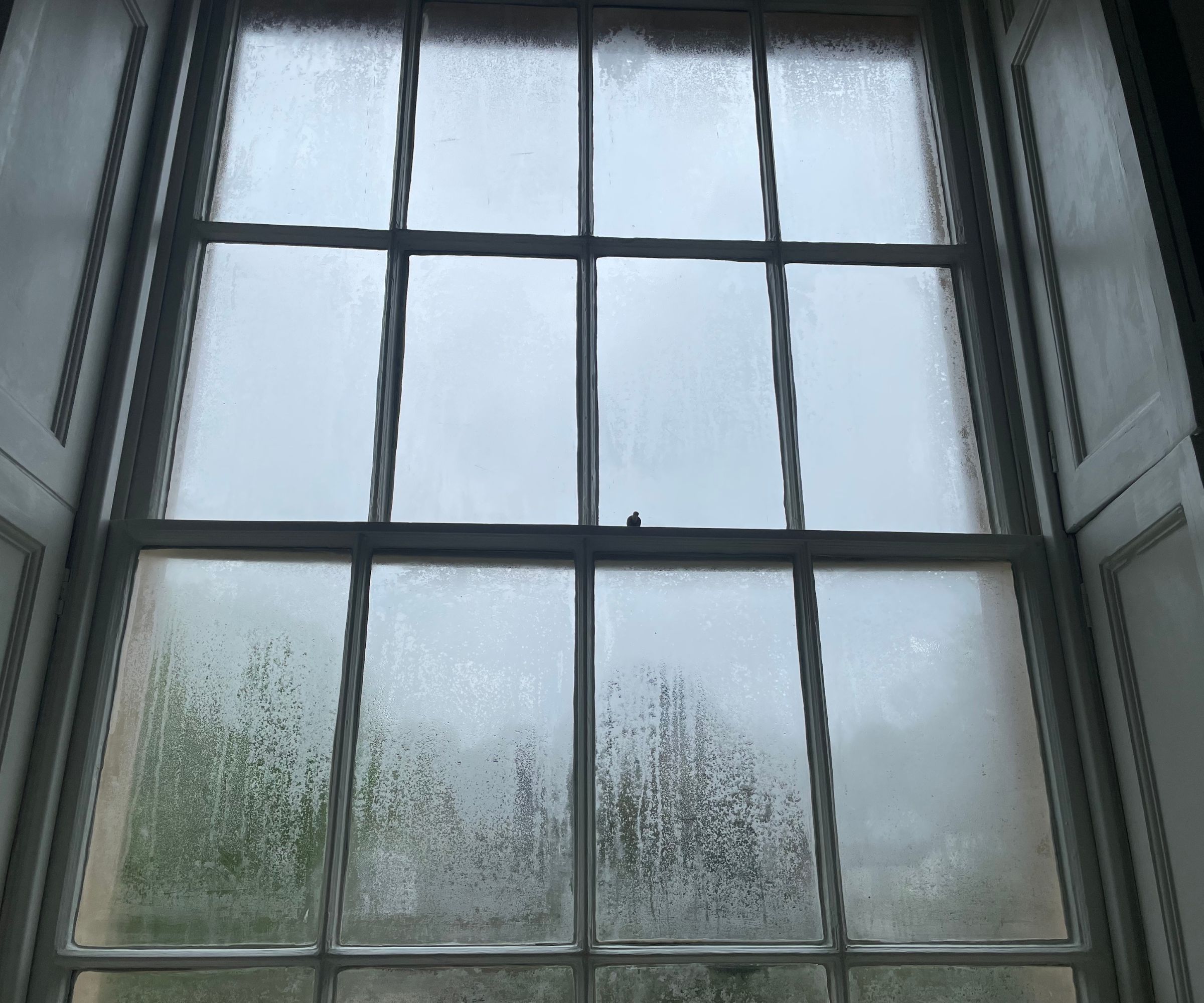
This is the condensation on my bathroom window. I used the best dehumidifers on the market to see which could clear this the quickest
When it comes to choosing the best dehumidifier for a bathroom, there are a few factors that you need to consider that differ from if you were buying one for another area of your home. Based on the things you need to know before buying a dehumidifier these are the considerations for bathrooms:
Sign up to our free daily email for the latest royal and entertainment news, interesting opinion, expert advice on styling and beauty trends, and no-nonsense guides to the health and wellness questions you want answered.
- Type of dehumidifier: your model will pull excess moisture from the air using a cold surface (refrigerant) or it'll absorb the moisture (desiccant). The two different types suit very different spaces. Refrigerant models are great in hot bathrooms and they'll effectively take a lot of the humidity out of your air, whilst a desiccant will be more efficient in cooler bathrooms that have more of a lingering dampness. You could also consider opting for a dehumidifier that uses an absorbency method such as gel or beads rather than powered by electricity.
- Size and portability: bathrooms aren't known for being the most spacious rooms in the home, so I like my dehumidifiers to be as compact as possible. It should be easy to move around and tuck onto a counter, shelf, or into a corner. If you're not sure, we have advice on how to choose the size of your dehumidifier, straight from the experts' mouths.
- Water tank capacity and drainage: given that bathrooms have the most humidity of all rooms in the house, you'll want your dehumidifier to have a water tank that can hold at least 1 litre or a continuous drainage hole. These need to be easy to empty.
- Moisture extraction rate: this ties in to the tank capacity, but you'll want your dehumidifier to take at least 5-10 litres of water out of the air. If your bathroom has more serious issues, you can look for a more powerful unit.
- Energy efficiency: lots of people as me how much it costs to run the dehumidifier and you'll want yours to be as energy-efficient as possible. A simple way to check this is by looking for energy certifications and eco-friendly modes.
- Price: I always love a good dehumidifier deal, but you might not need one if you've found a model that's cheap and efficient too. I've included suggestions below that are a steal, even at full price.
- Noise: noise levels vary for dehumidifiers, but one thing is for sure, you don’t want to listen to anything too loud while you’re trying to relax in the bath. Look for dehumidifiers that have a decibel rating under 40, this is especially important if you’re looking for the best dehumidifier for the bedroom too.
- Auto-humidity: bathrooms never stay in the same humidity because you’re in and out and doing different things. So, if you are going to opt for an electrical version, look for one with an automatic humidity setting. That way, it will kick in when it rises past a set level and stop running when it brings that humidity back down.
FAQs
Is it safe to use a dehumidifier in a bathroom?
Using a non-electrical dehumidifier in a bathroom is completely safe. If your chosen dehumidifier uses a gel or beads to collect the water, then there is no problem. It’s a great idea because the bathroom is one area where humidity levels are always high, even if you’re not taking a shower. So by using a dehumidifier in the bathroom, you’re reducing the chance that mould and mildew will spread elsewhere in the house.
A non-electrical dehumidifier is the perfect way to prevent condensation on windows, especially in a bathroom – it's also ideal for preventing mould in wardrobes with ease.
Chris Michael, managing director at Meaco, a leading dehumidifier manufacturer, advises, “We don’t advise using a (electrical) dehumidifier in the bathroom because it isn’t IP rated, but positioning a dehumidifier as close to the bathroom as possible with the door open still can help to reduce moisture quickly.”
Electrical dehumidifiers also have cords and plugs not designed to be used in wet environments. Constant exposure to moisture can cause the corn insulation to fray or crack, which could increase the risk of electrical shock. Not to mention, draping cords are a trip hazard.
"Because I don't have the correct IP-rated electrics in place in my bathroom my only option was to seek a dehumidifier that is not mains-powered," says Tamara Kelly, w&h's lifestyle editor.
"I decided on the UniBond Moisture Absorber AERO 360º and it does the job perfectly. My bathroom is only small but you'd be amazed at how much moisture the device captures. All you simply do is buy the refills every few months to keep it functioning at all times."
UniBond AERO 360° Moisture Absorber Neutral Refill Tabs, pack of 4 for £12.50 at Amazon
Mine last at least two months (but each household will differ) before they need to be replaced with new ultra-absorbent and odour-neutralising tablets that you can very easily slip into the top compartment of the device in a matter of seconds.
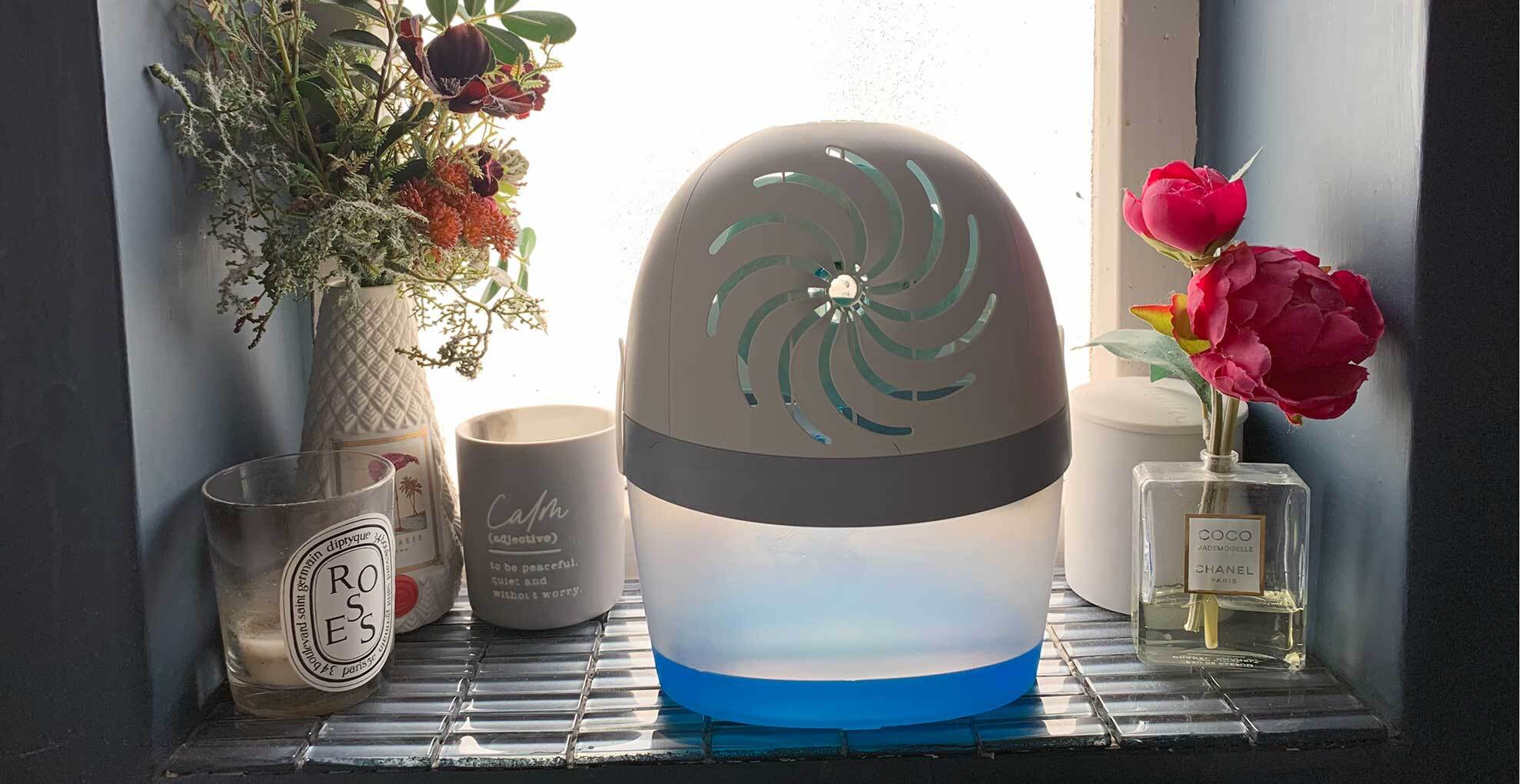
The UniBond Moisture Absorber AERO 360º dehumidifier in Tamara's bathroom

Chris Michael is the expert co-founder of Meaco. Since its launch in 1991, Meaco has become a leading UK provider of air treatment products and the brand’s products have won a wealth of industry and design awards internationally.
What kind of dehumidifier do I need for a bathroom?
In general, it’s a great idea to use a dehumidifier for bathrooms because it’s the ideal environment for mould, condensation, and dampness to occur. However, it is advisable to avoid using electrical dehumidifiers within the action room itself. The potential safety hazards associated with their use in these damp environments far outweigh the benefits of moisture removal.
If you do wish to use an electric dehumidifier, then always situate it outside the bathroom itself – perhaps on the landing area just outside. You will still reap the benefits, and as a bonus, it will work to remove excess moisture from the surrounding areas, too as well as perform other functions like being able to use a dehumidifier to dry your clothes.
When it comes to choosing the best dehumidifier for a bathroom, you first need to determine the right size. If your bathroom is small, opt for a non-electrical version using silica gel or beads to soak up the moisture. These dehumidifiers are super versatile as they’re small, compact, and can be placed anywhere.
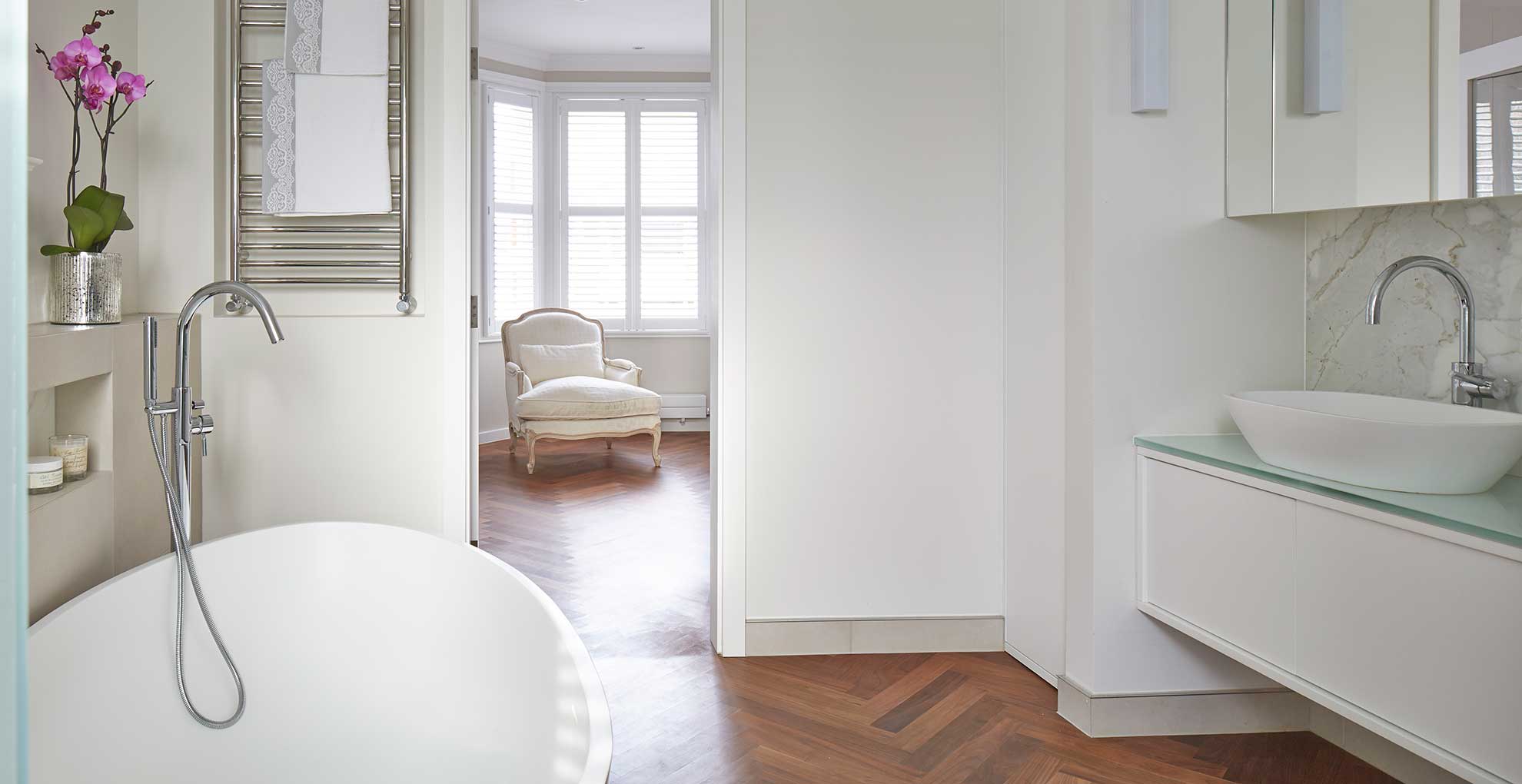
If your bathroom is a little larger or you want to ensure the rest of your home stays within normal humidity levels, then opt for an electrical version. Be sure to purchase a dehumidifier that is the right size for the area.
To do this, measure the square footage of the area and cross-check against the manufacturer's specifications. You can then place the dehumidifier in a central position and leave it to work its magic. Just be sure to leave the bathroom door open when you’ve finished to release the moisture for the dehumidifier to remove.
What is the best way to dehumidify a bathroom?
The best way to dehumidify a bathroom is with a moisture-absorbing dehumidifier, not an electrical one. Because as we've already touched on electric devices are never recommended in bathrooms unless they meet certified IP Ratings.
But don't fear that these don't work as well, because they really do. As our w&h lifestyle editor, Tamara Kelly explains: "I have a converted period property with a small bathroom with no extraction fan in place, so naturally humidity does cause problems.
"I always have the window open, whatever the season, to allow for ventilation but of course, it's not as effective as a fan. But to combat the problem I have the UniBond Moisture Absorber and it is incredible to see just how much water it captures throughout the week."
"I also have the best plants to help with condensation and humidity – including a snake plant that thrives in the warm, wet environment and helps to absorb some of the excess moisture."
Is it worth getting a dehumidifier for the bathroom?
As the one room that is filled with hot humid air daily is it most definitely worth getting a dehumidifier, but as we have stressed before it's only worth getting the right type.
As Chris Michael, managing director at leading dehumidifier manufacturer, Meaco explains: “We don’t advise using an electrical dehumidifier in the bathroom because it isn’t IP rated." But many non-electric alternatives use beads or cartridges to absorb the excess water and fill a tank, in a very similar way to the electrical appliance.
If you already have an electrical dehumidifier in the house you can also try positioning it as close to the bathroom door as possible and leaving it open to help to reduce moisture quickly. But of course, this lack of privacy won't suit all households. So if in doubt get a non-electrical dehumidifier instead.
While some bathrooms have adequate ventilation to stop the moisture from causing dampness, mould, and condensation in your bathroom, sometimes they’re just not enough to stop the problem. Likewise, opening up a window is all good until winter kicks in and you’re shivering in the shower. Therefore it's also a good idea to have a solution in place, such as one of the recommended dehumidifiers above.

Rachael has been a freelance journalist specialising in lifestyle, home, and technology for the past 19 years. She has been reviewing household appliances, from vacuum cleaners to dehumidifiers, across various Future publications for the last five years. This means she's tested dozens of dehumidifiers over the years to compare the best brands and models based on how well they work in her Victorian terraced house, which suffers from dampness and condensation, the perfect environment to test the best dehumidifiers.
- Laura HoneyHomes Ecommerce Editor
